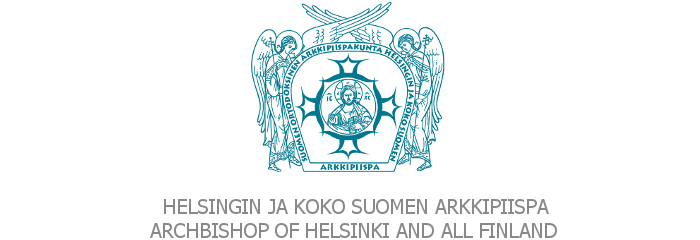Interview: "We are part of one international Orthodox family"
Your Eminence! How do you see the prospects for the Orthodox Church in Finland and in the world in general at the present moment?
“The population forecast for the Finnish Orthodox Church is good. Our membership is unlikely to diminish over the next thirty years to anything like the same extent as that of the Lutheran Church of Finland".
"The main potential sources of new members are immigrants and Finnish people joining the church.”
What does life in Finland and in the world in general look like in the Year of Our Lord 2008? What are the good things about it and what causes are there for concern? Prices have risen especially steeply this year and life in the world around us is becoming more insane all the time. Is there any hope for us any longer? People are inclined to say that they are close to desperation since private individuals are powerless to do anything about the “awful world” we live in.
“There is no reason for feeling desperate. Our church proclaims belief and hope. Material deprivation is a familiar thing for us of the older generation, as we saw it in our youth". "
It is clear, though, that we can’t afford to increase the differences in living standards any further. It is also important from the church’s viewpoint to emphasize that those who are better off should be prepared to give up some of their privileges for the sake of those who are less well off.”
You have lived a very rich and varied life. What does it seem like now, when you look back on it from the age of 60? And what does the future have in store, for you, for Finland and for the world?
“I grew up in Finland when it had a single, uniform culture. Now that culture and the philosophy of conformity that went with it are over. The Orthodox Church of Finland is a part of the huge international family that makes up the worldwide Orthodox community, a family that encompasses a multiplicity of theological and moral standpoints. The fact that the core of the church’s beliefs, such as the Incarnation or the Holy Trinity, was established way back in the 3rd century has left a great deal of space for creative inspiration within our theology.”
“The increased diversity of religions in Finland and the other Nordic countries is not a threat to the Orthodox minority church in the same way as it is to the majority churches. Multilingualism and multiculturalism come naturally to a minority church. The use of languages such as Russian, Church Slavonic, Swedish, Romanian, Serbian, Greek or Skolt Saame has become a normal part of parish life in the cities of Southern Finland, and the trend is now spreading to Savo and Northern Karelia.”
And once more, what are your feelings about your approaching birthday and having had a chapel of your own built in your home village?
“I have been dreaming for a long time of having a chapel of my own, and now the dream has come true.”
Interview with Archbishop Leo to mark the occasion of his 60th birthday, June 2008




